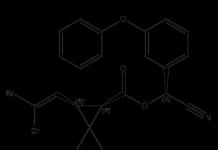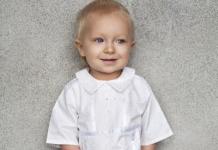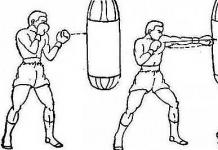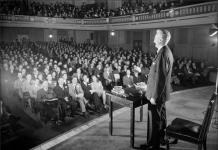On April 10, 2014, Nadezhda Afanasyevna Drobyshevskaya, a psychotherapist and expert on family education, reposed in the Lord.
Nadezhda Afanasyevna was known to the public as the author of the documentary books “Children’s Truth” and “Children Should Not Be Lost.”
The first book, telling about patients in children's psychiatric hospitals who were admitted there for antisocial behavior, was published in 2003 by the Publishing House of the Belarusian Exarchate with the blessing of Metropolitan Philaret of Minsk and Slutsk. The second book, devoted to the analysis of social orphanhood, family dysfunction and teenage crime, was published in 2013 by the Moscow Patriarchate Publishing House with the blessing of His Holiness Patriarch Kirill of Moscow and All Rus'.
Nadezhda Drobyshevskaya graduated from Vitebsk Medical University in 1971. She worked as an obstetrician-gynecologist, then continued her education at the Department of Psychiatry of the Moscow Institute for Advanced Medical Studies. While working at the sanatorium of the Central Committee of the Party in Crimea, she received a Gospel as a gift from one of the employees of the CPSU Central Committee. This event became for her one of the first steps towards Orthodoxy.
As a pediatric psychotherapist, Nadezhda Afanasyevna worked for 6 years at the Republican Psychiatric Hospital (Minsk). She advocated a revision of the existing system of hospitalization for difficult children. “Children need psychiatrists to first of all show their moral responsibility for them,” she emphasized. - When a child loses his mother forever, and she is alive and in the same city, and sometimes even sober, and the child never ceases to hope that maybe his mother will take him away from the boarding school, and my teenager writes to such a mother: “Dear mother . This is Dima writing to you. I miss you. Come to me at least someday. Mom, I cry every day. Because you don’t come to me.” Dima wrote a note, but there was nowhere to send it. And no one comes or goes to him. His condition is getting worse. And instead of his mother, we give him chlorpromazine!
After the publication of the book “Children's Truth,” Nadezhda Afanasyevna was invited by the governor of the Minsk region to work on the regional commission for minors. In this position, she worked to solve problems of family dysfunction and antisocial behavior of minors, as well as to restore spiritual and moral education in the family and school. Nadezhda Drobyshevskaya actively communicated with teachers, parents, students, and officials. She carried out her work with the support and participation of clergy of the Belarusian Orthodox Church.
After retiring, Nadezhda Drobyshevskaya continued to attend seminars and conferences and hold meetings with children and parents. She has spoken on Belarusian and Russian television on the topic of juvenile justice and other topical issues.
Having already fallen ill with an incurable disease, Nadezhda Afanasyevna did not give up thoughts of writing another book - “We Have No Time.” “Not only do we not know how to communicate, but parents and teachers also have no time. Teachers have no time because they have other goals and tasks for which they are asked. By the way, the police also have no time. There are only a few enthusiasts among all categories. And happy are those children who get to meet such people. But there are more of those who are subject to exclusively repressive measures,” she said in one of her last interviews.
The works of Nadezhda Afanasyevna Drobyshevskaya are a great contribution to domestic pedagogy, psychology, and psychiatry. Church.by
April 17, 2014On April 10, 2014, Nadezhda Afanasyevna Drobyshevskaya, a psychotherapist and expert on family education, reposed in the Lord.
Nadezhda Afanasyevna was known to the public as the author of the documentary books “Children’s Truth” and “Children Should Not Be Lost.”
The first book, telling about patients in children's psychiatric hospitals who were admitted there for antisocial behavior, was published in 2003 by the Publishing House of the Belarusian Exarchate with the blessing of Metropolitan Philaret of Minsk and Slutsk. The second book, devoted to the analysis of social orphanhood, family dysfunction and teenage crime, was published in 2013 by the Moscow Patriarchate Publishing House with the blessing of His Holiness Patriarch Kirill of Moscow and All Rus'.
Nadezhda Drobyshevskaya graduated from Vitebsk Medical University in 1971. She worked as an obstetrician-gynecologist, then continued her education at the Department of Psychiatry of the Moscow Institute for Advanced Medical Studies. While working at the sanatorium of the Central Committee of the Party in Crimea, she received a Gospel as a gift from one of the employees of the CPSU Central Committee. This event became for her one of the first steps towards Orthodoxy.
As a pediatric psychotherapist, Nadezhda Afanasyevna worked for 6 years at the Republican Psychiatric Hospital (Minsk). She advocated a revision of the existing system of hospitalization for difficult children. “Children need psychiatrists to first of all show their moral responsibility for them,” she emphasized. - When a child loses his mother forever, and she is alive and in the same city, and sometimes even sober, and the child never ceases to hope that maybe his mother will take him away from the boarding school, and my teenager writes to such a mother: “Dear mother . This is Dima writing to you. I miss you. Come to me at least someday. Mom, I cry every day. Because you don’t come to me.” Dima wrote a note, but there was nowhere to send it. And no one comes or goes to him. His condition is getting worse. And instead of his mother, we give him chlorpromazine!
After the publication of the book “Children's Truth,” Nadezhda Afanasyevna was invited by the governor of the Minsk region to work on the regional commission for minors. In this position, she worked to solve problems of family dysfunction and antisocial behavior of minors, as well as to restore spiritual and moral education in the family and school. Nadezhda Drobyshevskaya actively communicated with teachers, parents, students, and officials. She carried out her work with the support and participation of clergy of the Belarusian Orthodox Church.
After retiring, Nadezhda Drobyshevskaya continued to attend seminars and conferences and hold meetings with children and parents. She has spoken on Belarusian and Russian television on the topic of juvenile justice and other topical issues.
Having already fallen ill with an incurable disease, Nadezhda Afanasyevna did not give up thoughts of writing another book - “We Have No Time.” “Not only do we not know how to communicate, but parents and teachers also have no time. Teachers have no time because they have other goals and tasks for which they are asked. By the way, the police also have no time. There are only a few enthusiasts among all categories. And happy are those children who get to meet such people. But there are more of those who are subject to exclusively repressive measures,” she said in one of her last interviews.
The works of Nadezhda Afanasyevna Drobyshevskaya are a great contribution to domestic pedagogy, psychology, and psychiatry.
In recent years, the problem of difficult children has been growing more and more in our country, and what is even sadder is that the percentage of child crime is increasing. Many modern children, having forgotten the commandments of God, not only disobey and are rude to adults, they swear, smoke and drink. It is not uncommon to encounter unprecedented cruelty and anger among children, which lead to more terrible consequences - fights, robberies and even murders. What are the reasons for such aggression? Where does it come from in the once pure soul of a child? And where to look for a solution to this painful problem? The book, which was published by the publishing house of the Moscow Patriarchate and is called “Children should not be lost: From the experience of working with difficult children,” is intended to answer these and other questions.
The author of this book is Nadezhda Afanasyevna Drobyshevskaya, a psychotherapist, an expert on the problems of family education, a member of the Republican Public Council on Morality. Based on many years of experience working with difficult children, the author analyzes various aspects of the problems of social orphanhood, family dysfunction and juvenile delinquency. According to Nadezhda Afanasyevna, one of the main reasons for juvenile delinquency is defects in family education. “What a family - such children,” say the teenagers themselves. In this regard, the question arises: why is there no proper upbringing in the family, and why don’t dads and moms even know about it?
As it turned out, says the author, they themselves know little about education. For example, 62 percent of the parents surveyed admitted an insufficient understanding of the goals, objectives and methods of education, and the lack of uniform requirements. But here are the typical mistakes they pointed out: “blind, unreasonable love for a child”; “unjustified idealization (“my child is the best”); “excessive severity, authoritarianism, rude manifestations of parental authority, use of physical punishment”; “undemanding in relation to children”; “shifting worries about education to kindergarten, school”; “lack of tact in relations with the child”; “parents’ quarrels in the presence of children”; “immoderate satisfaction of their material needs” and so on.
It turns out, the author notes, that the parents themselves create problems, and then commissions, inspections, special schools, psychiatric hospitals, and courts follow. The author asks the following questions: “Why is so little actually being done to solve the problem of child crime? Where did it all start? To understand the process of neglect of family education, Nadezhda Afanasyevna suggests turning to our history. Previously, children were raised “according to conscience,” “according to truth,” “according to God.” The child’s right to moral education was considered natural, self-evident. Violation of this right caused a storm of indignation in society, condemnation according to human law, but the main thing was the law of God.
The Bible says: “Teach your son and work on him, so that you do not have grief from his indecent actions” (Sir. 30:13). People feared God and were afraid of punishment for their negligent attitude towards raising children. The very concept of “antisocial behavior” did not exist then. And why did teenagers have to behave badly, asocially, immorally, if they received a Christian upbringing, which was a strong core for them, giving them moral immunity, thanks to which they coped with life’s problems and temptations? Immoral, antisocial behavior became characteristic of children after 1917, when life without God was proclaimed.
But what goes around comes around. The destruction of the family began. Very quickly, teenagers with the most pronounced signs of antisocial behavior began to fill the children's wards of psychiatric hospitals. Commissions for the affairs of minors were created. In Russia in 1933, for the first time in world medical practice, the diagnosis “pathocharacterological formation of personality” appeared. This meant bad behavior: “lies, steals, smokes, disobeys...” Time passed. Approaches to solving this problem have changed, but doctors have not found a way to treat antisocial behavior in adolescents. According to the author, today we must understand the reasons for the plight in which modern children find themselves. Finally, admit that the revival of family spiritual and moral values without the participation and help of the Church is impossible!
As the author notes, when meeting with “difficult” children who commit offenses and cause big problems for society, she clearly sees the obvious unsuitability of existing psychotherapeutic methods. Wanting to help such children survive, not lose hope in a hopeless situation, and grow into worthy people, Nadezhda Afanasyevna began to seriously think about this problem. For five years of work in the Republican Clinical Psychiatric Hospital and the same amount of time in the regional commission for minors, she never heard children complain about the family’s financial difficulties, even when this happened. Behavioral problems of adolescents are associated, as they believe, most often with intra-family conflicts, with the inability and unwillingness of parents to live in peace and harmony and to educate them.
Children draw this conclusion based on their bleak life experiences. They accurately indicate the reasons. This is also confirmed by scientists, lawyers, doctors, teachers, as well as the Center for Sociological and Political Research of the Belarusian State University. As the author writes, children need their parents to teach them to understand why a person comes into this world, what his purpose is, what the meaning of life is. Children want to be taught how to communicate peacefully. They experience an acute lack of proper communication with adults, so they want their parents to notice not only their physical presence.
Children want adults to not only say: “You can’t lie, steal, smoke, swear, be promiscuous, kill,” but also explain why. Children want their parents and other adults to show them good examples, not bad ones. They want to know the rules by which to live in order to be happy themselves and to make others happy. They want to have real parents. Children want to be loved. It is not so much the children who are to blame for their terrible lives, says Drobyshevskaya, as their parents, who do not give them attention, care and love.
This book contains incidents from the lives of children, the thoughts and words of teenagers themselves about what a real family should be like. Nadezhda Afanasyevna examines the problems posed, both from the children themselves, and from the parents and the state. Such subtle psychological research makes it possible to better understand the grief that a vulnerable child’s psyche faces, and at the same time realize the importance of cooperation with the Church for the salvation of a child’s soul.
On April 10, 2014, Nadezhda Afanasyevna Drobyshevskaya, a psychotherapist and expert on family education, reposed in the Lord.
Nadezhda Afanasyevna was known to the public as the author of the documentary books “Children’s Truth” and “Children Should Not Be Lost.”
The first book, telling about patients in children's psychiatric hospitals who were admitted there for antisocial behavior, was published in 2003 by the Publishing House of the Belarusian Exarchate with the blessing of Metropolitan Philaret of Minsk and Slutsk. The second book, devoted to the analysis of social orphanhood, family dysfunction and teenage crime, was published in 2013 by the Moscow Patriarchate Publishing House with the blessing of His Holiness Patriarch Kirill of Moscow and All Rus'.
Nadezhda Drobyshevskaya graduated from Vitebsk Medical University in 1971. She worked as an obstetrician-gynecologist, then continued her education at the Department of Psychiatry of the Moscow Institute for Advanced Medical Studies. While working at the sanatorium of the Central Committee of the Party in Crimea, she received a Gospel as a gift from one of the employees of the CPSU Central Committee. This event became for her one of the first steps towards Orthodoxy.
As a pediatric psychotherapist, Nadezhda Afanasyevna worked for 6 years at the Republican Psychiatric Hospital (Minsk). She advocated a revision of the existing system of hospitalization for difficult children. “Children need psychiatrists to first of all show their moral responsibility for them,” she emphasized. - When a child loses his mother forever, and she is alive and in the same city, and sometimes even sober, and the child never ceases to hope that maybe his mother will take him away from the boarding school, and my teenager writes to such a mother: “Dear mother . This is Dima writing to you. I miss you. Come to me at least someday. Mom, I cry every day. Because you don’t come to me.” Dima wrote a note, but there was nowhere to send it. And no one comes or goes to him. His condition is getting worse. And instead of his mother, we give him chlorpromazine!
After the publication of the book “Children's Truth,” Nadezhda Afanasyevna was invited by the governor of the Minsk region to work on the regional commission for minors. In this position, she worked to solve problems of family dysfunction and antisocial behavior of minors, as well as to restore spiritual and moral education in the family and school. Nadezhda Drobyshevskaya actively communicated with teachers, parents, students, and officials. She carried out her work with the support and participation of clergy of the Belarusian Orthodox Church.
After retiring, Nadezhda Drobyshevskaya continued to attend seminars and conferences and hold meetings with children and parents. She has spoken on Belarusian and Russian television on the topic of juvenile justice and other topical issues.
Having already fallen ill with an incurable disease, Nadezhda Afanasyevna did not give up thoughts of writing another book - “We Have No Time.” “Not only do we not know how to communicate, but parents and teachers also have no time. Teachers have no time because they have other goals and tasks for which they are asked. By the way, the police also have no time. There are only a few enthusiasts among all categories. And happy are those children who get to meet such people. But there are more of those who are subject to exclusively repressive measures,” she said in one of her last interviews.
The works of Nadezhda Afanasyevna Drobyshevskaya are a great contribution to domestic pedagogy, psychology, and psychiatry. /
Nadezhda Afanasyevna Drobyshevskaya graduated from the Vitebsk Medical Institute (now a university) in 1971. She worked as an obstetrician-gynecologist, then took up psychotherapy, and studied at the Department of Psychiatry at the Moscow Institute for Advanced Medical Studies. She worked in a party sanatorium in Crimea, where a certain employee of the CPSU Central Committee gave her the Gospel; this became for her one of the first steps towards Orthodoxy.
She worked as a pediatric psychotherapist for six years at the Republican Psychiatric Hospital in Minsk. Author of the book “Children's Truth,” which tells about patients in children's psychiatric hospitals who were admitted there for antisocial behavior (theft, hooliganism, drug addiction). It is not so much the children who are to blame for their terrible lives, says N. Drobyshevskaya, as their parents, who do not pay them attention, care and love. “Children’s Truth” is an accusation against society, primarily parents, of spiritual infanticide. After the book was published, she received an offer from the governor of the Minsk region to work in the regional executive committee, where she worked for four years as a leading specialist in the main ideological department. In 2013, the second book “Children Should Not Be Lost” was published - an organic continuation of the first book and a professional understanding of the family crisis.
In 2013, Nadezhda Afanasyevna learned about her serious illness: stage 4 liver cancer with metastases. Wanting to maintain peace of mind, prepare for death with dignity and not burden her family and friends, she told only a few about the diagnosis; refused chemotherapy and only completed a course of maintenance therapy. She gathered together, went to confession and often received communion; On April 10, 2014, she quietly and brightly went to be with the Lord.
We bring to the attention of site visitors an interview with Nadezhda Drobyshevskaya that is still relevant today and her deep monologue, in which she speaks as an experienced specialist and a believer about the influence of family and society on the development of children...
First meeting
— Nadezhda Afanasyevna, what problems in the field that you are involved in are the most pressing in Belarus at present? Are they different from priority issues in other countries?
— Our most pressing problem is the restoration of the spiritual and moral education of children. Previously, the Church did this. But since the Church was excluded from the educational process in the twentieth century, it was left to its own devices. The Code on Marriage and Family stated that education is socially useful work. That is, the child was raised by society, raised by everyone, which means no one.
 Today we need, firstly, to realize that the process of education is spiritual and moral, and, secondly, to solve the problem of training specialist teachers. This is relevant not only for Belarus. Colleagues from prosperous countries tell me: “You have a lot of economic difficulties, that’s why there are social orphans. But we don't have such difficulties. But the problem is the same! When I visit other countries, I am convinced that our pedagogy system is strong in its roots and folk traditions. If only we could nourish them a little, revive them with something spiritual!
Today we need, firstly, to realize that the process of education is spiritual and moral, and, secondly, to solve the problem of training specialist teachers. This is relevant not only for Belarus. Colleagues from prosperous countries tell me: “You have a lot of economic difficulties, that’s why there are social orphans. But we don't have such difficulties. But the problem is the same! When I visit other countries, I am convinced that our pedagogy system is strong in its roots and folk traditions. If only we could nourish them a little, revive them with something spiritual!
Children today, as the host of one television program rightly put it, experience “nostalgia for morality.” True, during an “impromptu” survey they may speak out, for example, in favor of civil marriage. But it’s worth working with the audience and then asking a banal question: “Would you like your sister to give birth to a child out of wedlock?” - we get a categorical answer: no! And the guys’ further reasoning becomes correct from a moral point of view! Only they have it buried somewhere in the depths. “You’ll dig it up,” and the children make a choice towards moral behavior.
“However, the problem of difficult children, delinquent children, is extremely acute. And it is solved mainly through correctional institutions. Is it effective?
— Due to my duty, I had the opportunity to meet with children who were on various records. And here’s the picture: a judge, a prosecutor, a policeman gather, and everyone begins to scare the children: “You will be released from prison, no one will marry you!” And so on. I asked: “Guys, are you scared to hear these words?” They are silent. I continue: “But I’m scared. Tell me, can you assure these strict uncles and aunts that you won’t do anything bad again?” They answer: “No.”
Such children are examined at the council, at the commission for minors, summoned to court, placed in a psychiatric hospital, in a colony school. Are these educational measures? This is punishment! The problem is moral, and we are trying to solve it using repressive methods.
- But what to do with such children? If the parents failed, can the state re-educate the teenager?
— About half a century has passed since I studied at school. And then, if a child committed an offense, let alone a crime (I don’t remember that), then few people talked to him. Father to school - and all the talk. It amazes me how difficult it is today to contact parents, especially father. I wish I could at least find my mother. And the reason for children’s delinquency and crime lies precisely in family relationships: as soon as conflict begins in the family, children become dysfunctional. When asked where bad behavior comes from, the children themselves answer this way: 1) from their parents, from their upbringing in the family; 2) from the media; 3) from friends and the street; 4) from ourselves. People who are professionally involved in pedagogy, psychology, moral and spiritual education understand what “from oneself” means; this is the extent to which the child absorbs the three previous influences that shape his own consciousness.
In Europe and America there is juvenile justice, but we seem to be lagging behind... When there was a system of raising children, rooted in the traditions of the people, we did not need any juvenile justice. After all, the family was a closed structure, and its problems did not appear outside (the garbage was not taken out of the hut). After the revolution, state ideologists decided: the family is a harmful phenomenon, therefore children should be raised in state institutions. And with this they changed people’s consciousness... Today my mother says: “I sent my child to school - let them raise it!”
Now the problem has worsened, and juvenile crime has become a sad reality. And we need juvenile justice. But I think our country will not necessarily follow the path of the West. He has his own, we have ours. And the West can learn a lot from us. The peculiarity of the trial of a child is that the interrogation cannot be carried out without a psychologist; the defendant’s lawyer must be familiar with the basics of child psychology, with the developmental characteristics of children of this age. It is necessary to take into account the psychology of the development of children's delinquency.
— Discussing the prospects for the introduction of juvenile justice, many are outraged that children have a legally enforceable right to sue their parents. How do you feel about this, and have there been cases in your practice when children should have sued their parents?
— When I worked in psychiatry, there were such examples as exceptions. But, in general, this is, of course, bad. If we do not ensure the moral education of children in the family and school, then no court will help. However, I think that with our mentality, in our conditions, there will be few children who want to sue their parents. The children told me this: “Nadezhda Afanasyevna, why don’t they let mom come to me? If she is deprived of parental rights, isn’t she already a mother?” Adults have the concept of “non-parents,” but it is almost impossible to amputate it in a child. But as he grows up, he will become bitter and take revenge on his parents for his childhood. A study was conducted at one boarding school. Many children from this boarding school have parents who are drunkards and do not work anywhere. But the guys answered that they love their parents. And when they were asked how they would watch them in old age, most of them wrote that they would kill them...
— How justified is the removal of such children from families to orphanages? It is often said that the worst family is better than the best children's institution.
— For children, the manifestation of love is not for the state to take them from their family to an orphanage, but to give them timely education so that the child does not develop an intrapersonal conflict, as is now happening due to the lack of spiritual and moral education in early childhood. Such a child sees the world through his distorted consciousness. And it’s difficult for him to make concessions, to compromise... He seems to be living the life of his parents.
- How to be? How to save children from “bad” families if upbringing in a public institution is also not an option?
“We are now trying to save children.” This is the same as, for example, if a ship was sinking, and we began to pump out the water without thinking to fix the leak. Any of our actions (actions, programs, etc.) cannot be called a manifestation of love for children, because love means giving moral and spiritual education from childhood. There is more love not where the child was taken away from the parents, but where the parents were taught how to raise children and were taught the basics of family life.
And further. We need to restore the authority of our parents. Previously, they listened to their elders and followed their advice, but today continuity has been lost. But for parents to have authority, they must set a good example for their children and become masters of word and deed. If a father drinks and uses force to demand from the child what he himself does not possess, he will never be an authority. One day, a mother came to Father John of Kronstadt with her eight-year-old son (in modern times - “difficult”) and asked: “Father, help!” He took the child on his lap, rocked him and said: “You are mothers, mothers,” realizing that nothing could be done to help him. Today, even more so, about many neglected cases one can say: hug the child and cry, since they did not understand the need for education in a timely manner. Understand: when oncology is advanced and the operation is useless, who shoots at the surgeons?.. If you do nothing, then today’s schoolchildren will be the same tomorrow. They wouldn't be missed.
Here is a typical case: a mother drinks, and her daughter, locked in a room, collects and eats cockroaches. Nobody knows how long this continues... Is it necessary to infiltrate such a family? Necessary. But “implementation” is only ten percent of the work we have to do. And ninety - forces and resources need to be directed to the training of educators. When we integrate into a family, do we understand how to provide help? What if they don’t expect this help there? Moreover, are they rejected? And it turns out to be a conflict! Help should be given when asked. Moreover, the specialist must have the highest authority, skills, and delicacy so that the help does not look offensive.
— Are you a supporter of soft or hard parenting? Do you think they should be physically punished?
— There must be love and severity. My point of view is that sometimes you can punish. The main thing is to do even this with love. After all, the Scripture says: if you are angry, do not sin. A child, if he is indulged in everything, will be untrained, unadapted, and devoid of willpower. Indulgence relaxes the will, just like TV, by the way. There are children who hold all-night vigils in church. Some adults are indignant: “You are torturing children!” And this child grows up, and he has the strength to withstand a lot, to endure considerable difficulties. And the same with fasting...
— How do you understand the rights of the child? What do they include?
— As Viktor Frankl said, humanity forgot ten rules and came up with ten thousand for every occasion. Read the Gospel commandments, there you will find both the rights of the child and the rights of the parents. In the Christian culture and traditions of our people it was like this: education began with familiarizing children with their responsibilities. As they grew older, their responsibilities towards parents, family, relatives, neighbors, teachers, and society expanded and became more complex. I came across a strong expression in literature: “Rights are given to those who fulfill their duties.” But the modern approach, when children are not introduced to responsibilities, but are told about rights, can hardly be called correct.
— What is your opinion on proposals to lower the age of marriage? After all, you refer to traditions; and before, it used to be that girls were married off at the age of twelve.
— The modern girl is in some ways ahead of the girls of past centuries in development, but not in her preparedness for family life. I ask a schoolgirl: what is happiness? She responds (and the audience agrees): it's when you're cared for. Our children are “naked” in terms of preparing for life and adapting. Previously, a girl from childhood was prepared for marriage: she learned to sew, wash, cook, that is, she was in labor. How does a girl live today? Beer, cigarettes, swearing. She is ready only for carnal pleasures, only for idleness - both in the city and in the countryside. She is not ready to be a mother. How to revive the maternal instinct in her? We need some strong emotional examples that can touch the depths of the soul.
Today's young mothers, who began early sexual activity with many partners, suffered sexually transmitted diseases and abortions, give birth to sick children. You can, of course, refer to Chernobyl, ecology, economics, whatever you like, but the spiritual and moral factor is the main one. The media develops the carnal and sexual in children. However, when the moral core of a child’s soul is formed, he needs to talk not about rights, but to build a foundation that will make it possible to resist life’s temptations. Our pious ancestors said: first prepare the inner man, and then the inner man will not take up his own business.

























